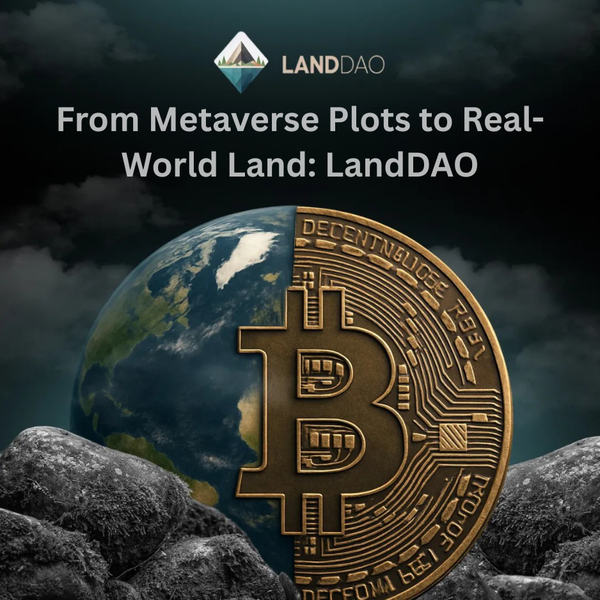Your DAO Investment Is Part of an Experiment With a 90-99% Failure Rate

Kevin Owocki, founder of Gitcoin, is releasing a new book "How to DAO" in January 2025. The book positions itself as a blueprint for the future of organizational development, detailing practical ways to establish and operate decentralized autonomous organizations (DAOs).
However, in recent responses to my email questions, Owocki acknowledged that 90-99% of DAOs will likely fail. He described DAOs as an "experimental space where there are 1000s of experiments happening, and when winter comes, 90%-99% of them will fail." He explained that DAOs are still in an experimental phase, comparing their 5-year history to the 300-year evolution of traditional corporate structures. According to Owocki, when "winter comes", only 1% that work "will become the keystone species of the next cycle."
I think that DAO creators and promoters should explicitly inform investors and other participants that they are part of an experiment and most likely will lose their time and money.
The lack of proven success is further evident in Owocki's admission that no comparative analysis exists between DAOs and traditional organizations. This means even successful DAOs haven't demonstrated better performance than traditional organizational structures. While Owocki points to examples like Gitcoin, Optimism and Arbitrum for cross-border collaboration, there's no data supporting their superior efficiency.
At the same time, there are truly decentralized organizational methods addressing real-world problems without relying on investors, tokens, blockchains or DAOs. For example Buurtzorg, a Dutch healthcare organization, revolutionized (yes) home nursing by implementing self-managed teams, significantly improving patient satisfaction and reducing overhead costs.
On the topic of token creation, the author of the book recognized that while tokens can help coordinate DAO members, there are problems with token-holder governance. He referenced Vitalik Buterin's writings on these issues and mentioned alternatives like "one human, one vote" systems that could work if privacy concerns are addressed.
The author confirmed that empty discussion forums in many DAOs are a sign of project failure. While he listed several active DAO forums, he acknowledged potential survivorship bias in these examples. Active governance participation, according to him, will be key for long-term survival.
After years of observing countless DAOs, a clear pattern emerges for me:
- Proposals put to vote often contain specific details incomprehensible to most token holders.
- Time-sensitive issues can languish in discussion for six months or longer.
- Some proposals face excessive bureaucracy from various control structures.
- Questionable decisions receive streamlined approval through internal councils that effectively control most DAOs.
- SM influencers can push through virtually any vote, creating even more imbalance in what's supposed to be a decentralized system.
The suggested "one human, one vote" alternative to token-based governance raises more questions than it answers. This approach inexplicably ignores that each participant contributes differently - with varying levels of effort, financial investment and expertise. The notion of equalizing all participants regardless of their involvement or capabilities seems counterproductive. Existing organizational structures naturally reflect human differences, making them more practical.
"One human, one vote" system appears vulnerable to manipulation - anyone could potentially influence voting outcomes by recruiting large numbers of participants, similar to how play-to-earn games or microtask platforms operate.
When asked about DAOs being created to pass the Howey Test - specifically attempting to demonstrate sufficient decentralization so that token profits would not be derived from managerial efforts of others and thus avoid securities registration - Owocki avoided direct confirmation. Instead of addressing the practice, he deflected by questioning the "US-centric worldview" and suggested examining "each project's individual merits." His response, while not explicitly confirming the practice, notably didn't deny it either, raising questions about this common but rarely discussed use of DAO structures.
DAOs might be useful in certain narrow niches and for micro-organizations in rare situations, but more often they are just another way to transfer funds from the pockets of many to the pockets of few under the guise of quasi-socialist ideas.





